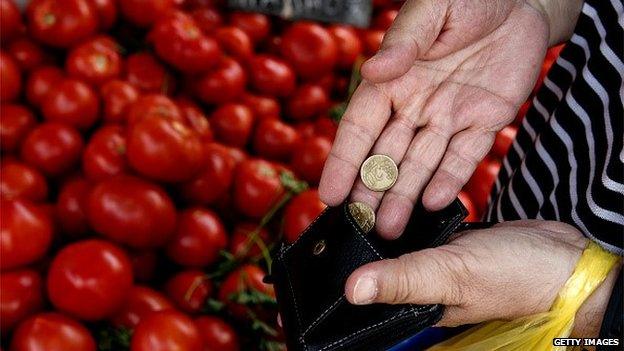Greece 'back in serious recession' despite rescue
- Published
- comments
Minister Rania Antonopoulos told the BBC that Greece was facing a serious recession
Greece's economy will contract a further 3%, Athens minister Rania Antonopoulos has told me in a BBC interview.
The alternate minister for combating unemployment, who was a professional economist, said that the combination of the closure of the banks and austerity measures being forced on the country by eurozone and IMF creditors will tip Greece back into serious recession.
She also told me that she felt the government of Alexis Tsipras could remain in power, in spite of accepting a bailout deal at least as onerous as one rejected by it and Greek people in a referendum.
She would not be quitting, she said - although she did not hide her deep distaste for the tax rises and spending cuts being forced on her administration.

She did not know which, if any, of her ministerial colleagues would resign.
Mr Tsipras had no choice but to capitulate in the face of pressure from creditors, led by Germany, because the alternative was the complete collapse of the banks, and the meltdown of the economy.
The alternative of quitting the euro could not be considered, she said, because Syriza had no mandate for that.
She would not be drawn on whether she was personally in favour of exit from the eurozone.
Even with the rescue agreed, subject to Athens parliamentary approval, and the approval of other eurozone parliaments - including the Bundestag in Germany - restrictions on withdrawals from Greek banks (capital controls) would remain for some time, she said.